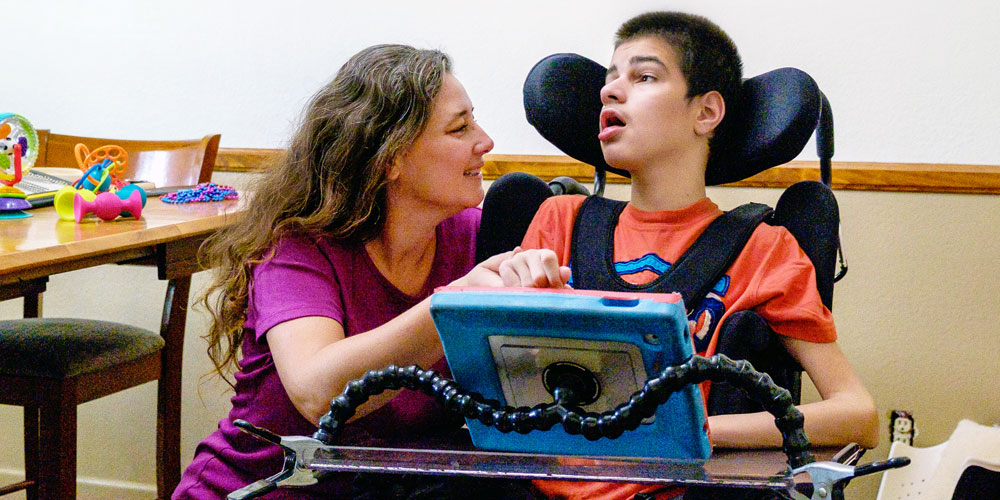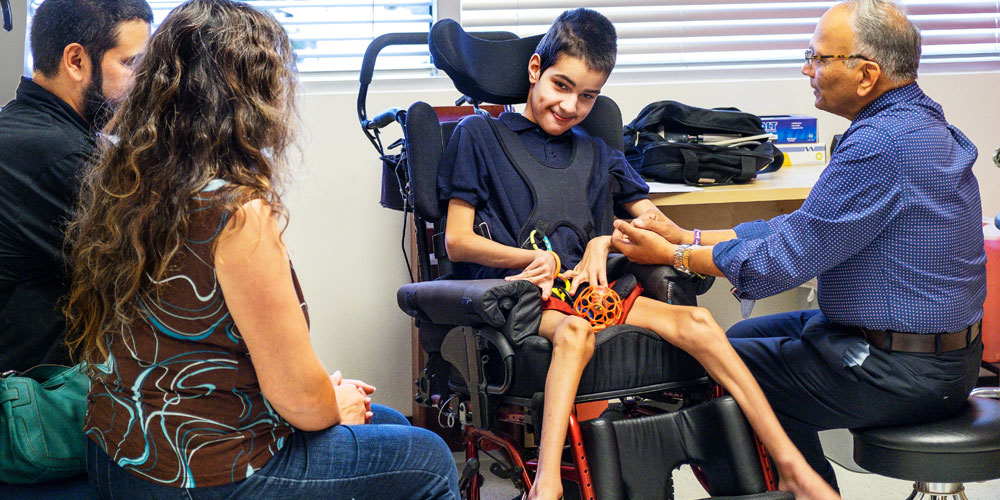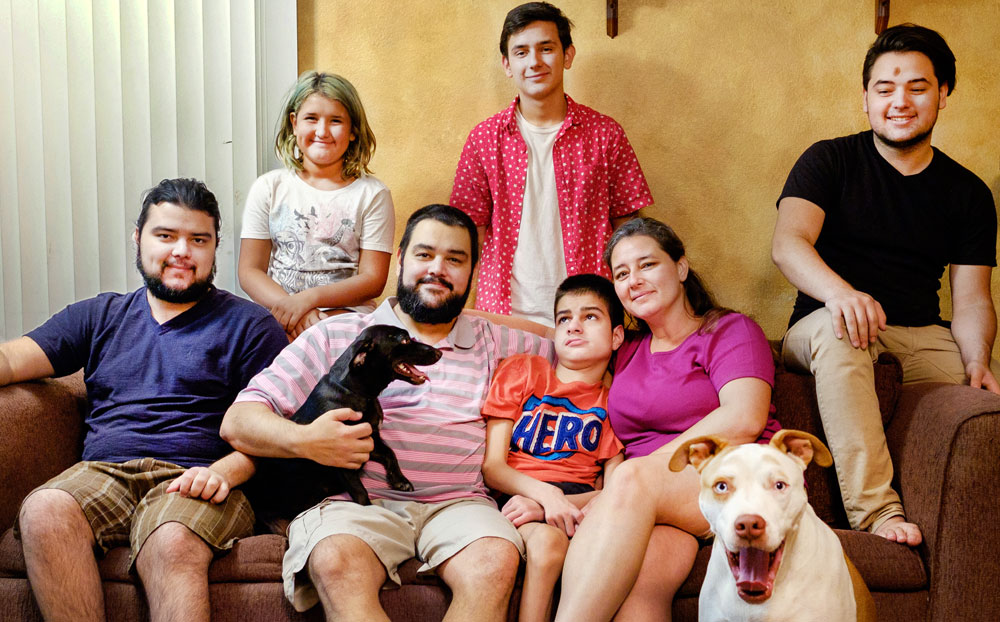Stephanie Rankin remembers the doctor appointment like it was yesterday: Her son, Beorn, was five months old. She was worried. His eyes didn’t seem to track things like they should. The doctor saw the same – but said the baby’s eyes seemed fine. He was more concerned about the baby’s brain.
Rankin never imagined she’d leave that office with an urgent need to see a neurologist – the start to a long journey that would eventually lead to Beorn’s rare disease diagnosis: a DNM1 gene mutation.

It took nearly 10 years to get to this diagnosis. In the meantime, Beorn experienced seizures and went through many biopsies and tests. Beorn’s gene mutation was difficult to diagnose. Rankin is filled with emotion when she recalls that time in her and her family’s life.
“You live day by day. You continue tests. Because you don’t know what he has, it’s hard to place meds and therapies with that,” Rankin explains. While she wanted to join support groups to talk with other moms and research Beorn’s condition on her own, Rankin felt lost without a diagnosis.
This is the type of challenge facing researchers at the Translational Genomics Research Institute’s (TGen) Center for Rare Childhood Disorders. Every day, TGen bioinformaticians, geneticists, and clinicians perform genetic sequencing in an effort to identify diseases and help more people survive them.
To accurately diagnose disorders, TGen relies on a Dell-designed high-performance computing (HPC) solution to quickly run extremely complex algorithms that analyze multiple terabytes of genetic and molecular data on a patient. The right amount of server performance, storage capacity, network bandwidth and availability are all critical.
In 2013, a team of TGen researchers – led by Drs. Matt Huentelman and Vinodh Narayanan – used this Dell technology to analyze the genetic sequencing data from the Rankin family in order to diagnose their son with a mutation in the DNM1 gene.

According to Dr. Narayanan, genetic testing has come a long way since the Rankin family began what he calls their “diagnostic odyssey” in 2005.
“At that time, we were able to examine all the chromosomes under a microscope to see if there were gross structural changes. This would be akin to looking at the earth from outer space and trying to determine if a leaf had fallen off a tree in a forest in California,” he says.
“Now, we can look at the spelling of a person’s genomic DNA at the individual letter level – so that’s a million-fold change in resolution. We are able to do this because of the super-computing power that is at TGen. This is thanks to Dell and Dell support.”
Better optics and faster computers means genomic analysis at a level that enables development of new drugs that target specific genetic mutations. Dr. Narayanan and the Rankin family are now focusing on what new treatments may be best for Beorn. View the video to learn more about TGen and Beorn’s story.
Although there is still no cure for her son’s disease, Rankin still feels like a burden has been lifted.
“We didn’t have a diagnosis forever or have a way to help him or advocate for him. There was so much of just not knowing,” Rankin says. “I worried about my other children. If they were to get married do they have to worry about their kids having what he has? Now we know it was a spontaneous mutation. It wasn’t something that is in our genes.”
A more connected world also factors into how TGen is advancing cancer care – and how Beorn’s diagnosis may benefit other families.
Dr. Narayanan applauds Rankin for her work in cultivating a strong social network of parents with kids affected by mutations in the DNM1 gene. These parents share things with each other like what physical therapy has helped, what medications have been effective, and so on. The team at TGen has collected and studied biospecimens from some of the children within this network, in order to gain insight into this rare disorder.
“Finally having a diagnosis means now you have this outside family,” Rankin says.
Beorn is now 12-years-old. He likes activity, noise and affection – and he gets plenty of it all, as one of five kids in the Rankin family.
“Beorn is so sweet and being his mom is really rewarding,” Rankin says. “He has taught us all a lot.”

As part of our work with TGen, we learn about remarkable young patients, and their families with extraordinary courage. Meet more of these special people here.
Explore more on delltechnologies.com:
CUSTOMER STORY: Speed is imperative in the fight against rare diseases. For Translational Genomics Research Institute (TGen) and its Center for Rare Childhood Disorders, the Phoenix-based research and treatment center, shortening the “diagnostic odyssey” is only the beginning. This customer story includes a video about TGen and Beorn.
TRAILBLAZERS PODCAST: From X-Rays to wearables, better healthcare means peering deeper into the human body. Join Walter and guests Dr. Daniel Kraft, Reenita Das, Dr. Jeffrey Trent, Anne Wojcicki and Dr. Giselle Sholler as they explore how wellness is becoming more personal, and more proactive.
This article shares one example of how Dell is committed to driving human progress by putting our technology and expertise to work where it can do the most good for people and the planet. We call this our Legacy of Good.
Explore our FY17 Annual update on our 2020 Legacy of Good Plan at legacyodgood.dell.com.